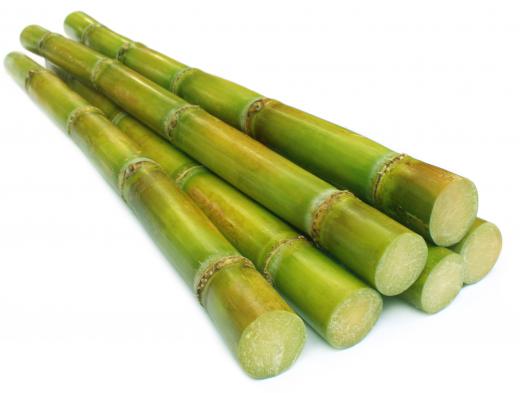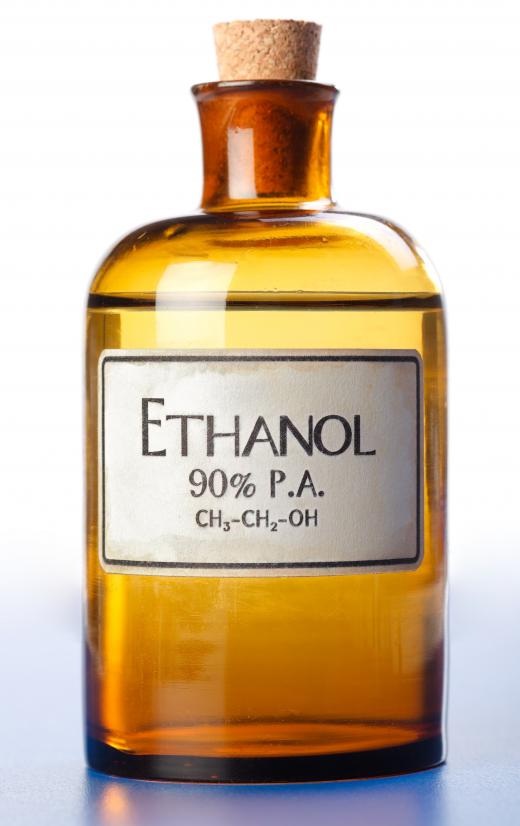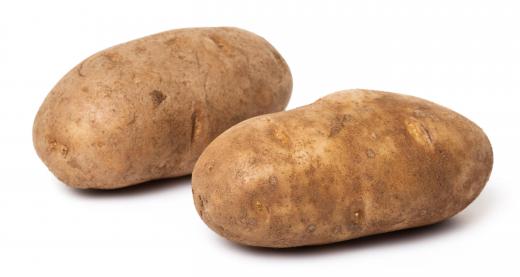Ethanol, ethyl alcohol, is the intoxicating element in beer, wine and other alcoholic beverages. It is also being used as a biofuel alternative in several countries across the world. Large industrial plants are the primary sources of ethanol production, though some people have chosen to produce their own ethanol fuel. Regardless of whether the production is done in a mass quantity or a back yard, the basic steps for making ethanol are the same; procuring the grain or plant, converting this to sugar, fermentation, distillation, and the addition of gasoline.
The first step in making ethanol is choosing the grain or plant to begin the process. Cereal grains, such as corn, rye, rice, barley, soybeans and wheat are all popular, but sugar beets and sugar cane are also effective. Some producers use high starch plants such as potatoes, and New Zealand produces ethanol from dairy whey waste. In the US, the most popular choice is corn; Brazil uses predominately sugar cane, Canada uses barley, and the primary choices in the European Union are sugar beets and wheat.

Once the grain has been chosen, it must be ground into a coarse powder. The result should not be as fine as flour, however, because it will clump together like a paste during the liquification process. The ground substance is then added slowly to water and heated. A liquification enzyme is added and the mixture is boiled for 20 to 30 minutes in order to kill any bacteria present.

The next step in making ethanol is the fermentation process. Once the liquid mixture has been removed from the heat, yeast is added and the liquid is allowed to ferment. The resulting product is similar to beer or wine. After fermentation, the liquid is run through a still to separate the alcohol from the water. A carbon filter is used next to remove any solid particles.

After the distillation process is complete, a drying substance is added to absorb the carbon dioxide and water. The alcohol is usually allowed to sit for several hours, and then is run through one more screening process. This end product should be 200-proof alcohol, which can be verified by using a hydrometer. The final step in making ethanol for use in most flex-fuel vehicles is to add unleaded gasoline. The most popular mixture is called E85, which has 85 percent ethanol and 15 percent gasoline.

Making ethanol as a fuel source began in the 1970s as an additive to extend gasoline. It was discovered that adding ethanol increases octane ratings, improves combustion and reduces carbon monoxide emissions. Ethanol has since become a standard component of higher octane gasoline as well as an alternative fuel for flex fuel vehicles.
Ethanol is now a major fuel source in many countries. Brazil has been making ethanol from sugar cane in order to reduce dependency on oil imports, and they have become the second leading producer of ethanol. France began making ethanol from grapes that are too poor in quality to use for wine making. Sweden also uses large quantities of ethanol, and India has recently begun using ethanol as a blending agent in gasoline. Other countries involved in making ethanol include China, Russia, South Africa, the United Kingdom, Spain, Canada, Thailand, Saudi Arabia, and Germany, among others.
